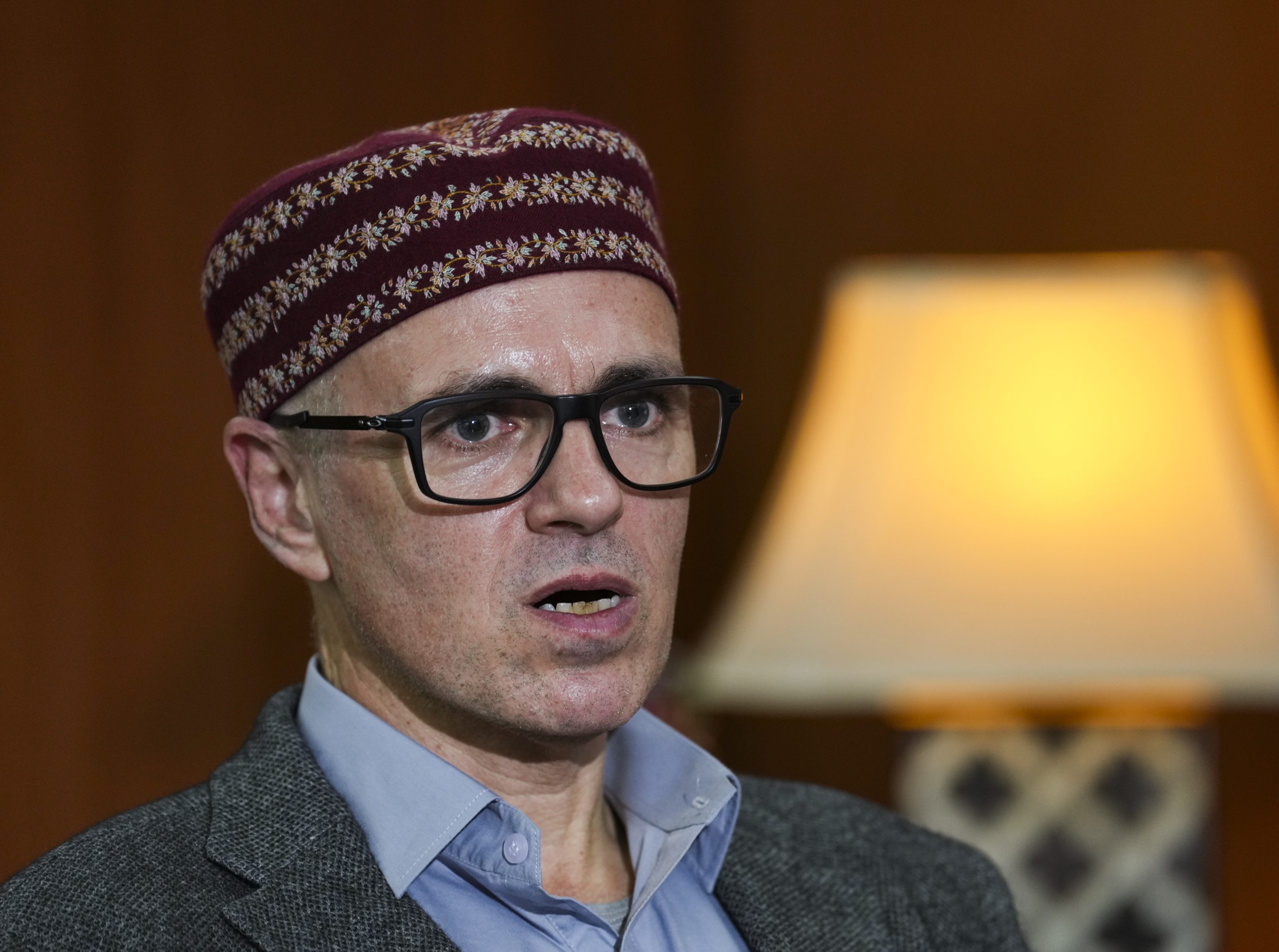NEW DELHI, Dec 14: Jammu and Kashmir Chief Minister Omar Abdullah has voiced concerns regarding the increasing dissatisfaction among partners in the INDIA bloc towards the Congress party. He has called on Congress to substantiate its leadership role within the alliance rather than assuming it as a given.
Abdullah acknowledged Congress’ significant standing as a national party and the largest opposition force in Parliament, yet underscored the notion that leadership must be earned and cannot be taken for granted. He further urged the party to advocate for the restoration of statehood in Jammu and Kashmir.
“Given their status as the largest party in Parliament, and with leaders of the opposition in both the Lok Sabha and Rajya Sabha, coupled with their extensive national presence, they should naturally position themselves as leaders of the opposition movement,” Abdullah stated in his first interview since taking office as chief minister in October.
Despite this, some allies have expressed unease, feeling that Congress has been inadequate in justifying or maintaining its leadership role. “That is something the Congress might wish to reflect on,” he remarked.
Abdullah also praised former Congress president Sonia Gandhi, recognizing her as a crucial leader within the opposition alliance. “When the INDIA bloc convenes, she plays a pivotal leadership role,” he added.
When asked about comments from leaders like Sharad Pawar or Lalu Yadav suggesting West Bengal Chief Minister Mamata Banerjee as a superior leader, Abdullah refrained from a direct response but highlighted a concerning lack of consistent engagement within the INDIA bloc, cautioning that the coalition risks becoming merely an electoral convenience.
He emphasized the necessity for ongoing dialogue beyond election cycles, expressing that the current sporadic engagement of the alliance appears ineffective.
“Our existence cannot solely revolve around the six months leading up to parliamentary elections. It must be more substantial than that. The last time we convened was shortly after the Lok Sabha results were announced, and there has been a noticeable lack of formal or informal collaboration within the INDIA bloc,” he stated.
Abdullah, who also serves as the vice president of the National Conference, highlighted the urgent need for a structured framework for communication.
“Regular interactions are essential,” he elaborated, stressing that, “we cannot simply become active when Lok Sabha elections are announced and expect to cohesively work together at that point.”
His remarks reveal underlying tensions within the opposition alliance, suggesting that infrequent meetings may exacerbate minor disputes.
“With a more consistent interaction process, some of these smaller issues might not escalate,” he added.
Abdullah has also expressed dissatisfaction with the electoral alliance formed between his National Conference party and the Congress in the run-up to the Jammu-Kashmir assembly elections, where he felt Congress fell short in their campaign efforts.
The National Conference secured 41 seats, while Congress captured only six, with observers noting that Congress leaders played a limited role in the campaigning, leaving most responsibilities to the NC.
Originally intended as a united front to counter the ruling BJP, the INDIA bloc has struggled to present a formidable opposition. Despite a decent performance in parliamentary elections, Congress and its allies have faced significant defeats in the recent assembly elections in Haryana and Maharashtra.
Abdullah’s remarks underscore the growing discontent within the INDIA bloc and the considerable obstacles it faces in countering the BJP in forthcoming political battles.
Offering a candid analysis of Congress’ recent electoral setbacks, Abdullah pointed to deepening rifts within political alliances, particularly concerning the party’s electoral strategy and seat allocation.
“The Congress must critically assess its performance record and apply what it learns to future elections,” he emphasized.
He noted that similar patterns of friction have emerged across various states, including Jammu and Kashmir, Jharkhand, and Maharashtra, contributing to failed collaborations, such as the Aam Aadmi Party (AAP) and Congress in Delhi, despite earlier parliamentary cooperation.
When asked if Congress could secure a ministerial position in Jammu and Kashmir, Abdullah drew comparisons with past power-sharing arrangements, noting the precedent set during the United Progressive Alliance (UPA) government under Manmohan Singh, when ministerial roles were allocated based on the number of legislators each party controlled. During that time, Abdullah’s father, Farooq Abdullah, held a minor ministry.
“If that model worked previously, it is applicable for Congress now. However, as a Union Territory, we are limited to nine ministers, including the chief minister, which restricts how many positions I could offer to Congress,” he explained.
The Congress party has indicated that its involvement in the government will depend on the restoration of Jammu and Kashmir’s statehood, suggesting a possible realignment of political strategies in the future.
“For now, they’ve made it clear that as long as Jammu and Kashmir remains a Union Territory, they will refrain from participation. Once statehood is restored, the situation may change. We hope that, amid their parliamentary discussions, they will also address the need for statehood for Jammu and Kashmir,” he concluded.


Leave a Reply